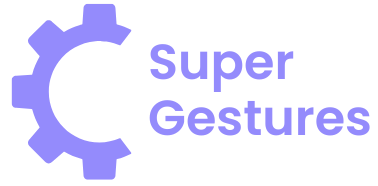Table of Contents
ToggleIn the fast-paced world of software development, efficiency is key. Programmers constantly seek ways to streamline their workflow and produce high-quality code faster. With the right strategies, they can significantly reduce time spent on repetitive tasks and enhance their overall productivity.
This article explores essential programming efficiency tips that can transform the way developers approach their projects. From leveraging automation tools to adopting best coding practices, these insights empower programmers to work smarter, not harder. Whether you’re a seasoned developer or just starting out, these tips will help unlock your potential and elevate your coding game.
Understanding Programming Efficiency
Programming efficiency refers to the ability to write high-quality code quickly while minimizing errors. Efficiency enhances productivity and ensures that projects stay within deadlines. Key factors contributing to programming efficiency include:
- Code Organization: Structuring code logically aids readability and maintenance. Use consistent naming conventions and hierarchical organization.
- Automation Tools: Integrating automation tools reduces repetitive tasks, such as testing and deployment. Tools like GitHub Actions and Jenkins streamline processes, saving valuable time.
- Version Control: Utilizing version control systems, like Git, allows programmers to track changes and collaborate effectively. Version control minimizes the risk of losing work and simplifies code management.
- Modular Programming: Breaking down code into smaller, manageable modules encourages reuse and simplifies debugging. Modular code enhances flexibility and enables easier updates.
- Code Reviews: Implementing peer reviews improves code quality. Feedback from colleagues can reveal potential mistakes and encourage adherence to best practices.
- Optimizing Algorithms: Selecting efficient algorithms and data structures boosts performance. Analyze time complexity to ensure that code executes quickly under various conditions.
- Continuous Learning: Staying updated with programming languages, frameworks, and tools enriches skill sets. Engaging with communities and resources fosters growth and innovation.
Employing these strategies leads to improved programming efficiency, translating to faster delivery of high-quality software projects.
Essential Tools for Enhancing Efficiency

Utilizing the right tools can significantly boost programming efficiency. Here are some key tools to consider.
Code Editors and IDEs
Code editors and Integrated Development Environments (IDEs) streamline the coding process. Many programmers prefer powerful IDEs like Visual Studio, IntelliJ IDEA, and Eclipse. These tools offer features such as code auto-completion, syntax highlighting, and debugging support, making it easier to write and test code efficiently. Lightweight editors like Visual Studio Code and Sublime Text are also popular for their speed and extensive plugin support. Programmers can enhance productivity by choosing a tool that suits their specific needs and workflows.
Version Control Systems
Version control systems keep track of changes in code over time, allowing multiple programmers to collaborate seamlessly. Git stands out as the most widely used version control system, enabling programmers to manage code repositories effectively. Platforms like GitHub and GitLab offer further collaboration features, promoting code reviews and merging processes. Utilizing version control minimizes the risk of losing work and simplifies the tracking of code modifications, which enhances overall efficiency in software development.
Best Practices for Writing Code
Writing clean code enhances collaboration and maintenance. Following specific practices leads to greater code efficiency and productivity.
Code Readability
Code readability plays a crucial role in long-term software development. Readable code improves understanding for teams and future developers.
- Use descriptive names: Variables, functions, and classes should have clear, descriptive names that accurately convey their purpose. Avoid single-letter names except for loop counters.
- Consistent formatting: Maintain consistent indentation and spacing throughout the code. Follow a style guide, such as PEP 8 for Python, to ensure uniformity.
- Comment wisely: Add comments to explain complex logic but avoid redundant comments that restate the obvious. Use meaningful comments to enhance comprehension without cluttering the code.
- Limit line length: Keep lines shorter than 80–100 characters to improve readability on various screens. This practice encourages better code review and reduces horizontal scrolling.
Writing Modular Code
Modular code enhances organization and reusability. By breaking code into smaller, manageable components, developers simplify debugging and testing.
- Define functions clearly: Each function should perform a single task or responsibility. This clarity improves code maintenance and testing efficiency.
- Encapsulate functionality: Group related functions into modules or classes. This organization makes it easy to locate and understand code segments.
- Reusable components: Identify repetitive code segments and convert them into reusable functions or libraries. This approach reduces duplication and expedites development time.
- Limit dependencies: Minimize interdependencies between modules. This reduces the impact of changes, making it easier to modify individual components without affecting the entire system.
Time Management Strategies
Effective time management enhances programming efficiency, allowing developers to allocate their time wisely for maximum productivity.
Prioritizing Tasks
Prioritizing tasks has a direct impact on programming efficiency. Developers can apply methods like the Eisenhower Matrix, which categorizes tasks based on urgency and importance. This approach helps in identifying tasks that require immediate attention versus those that can wait. High-impact tasks should always receive top priority, ensuring critical deadlines are met while fostering a proactive approach to workload management. Developers can also review task lists daily to adjust priorities based on project developments, which keeps critical objectives in focus.
Setting Realistic Deadlines
Setting realistic deadlines promotes accountability and prevents burnout. Developers should assess the complexity of tasks and their own workload before committing to timelines. Breaking large projects into smaller, manageable milestones allows for incremental progress and easier tracking. Adapting deadlines as needed is essential, especially in dynamic development environments. Regularly reviewing progress against set deadlines helps ensure the development stays on course and any adjustments are made promptly, maintaining momentum toward project completion.
Embracing programming efficiency is essential for any developer looking to enhance their workflow and deliver high-quality software. By implementing the right tools and best practices, programmers can significantly reduce development time while maintaining code integrity.
Focusing on clean code organization, effective use of automation, and proper time management strategies can make a substantial difference in productivity. Continuous learning and adapting to new technologies also play a crucial role in staying ahead in the ever-evolving landscape of software development.
Ultimately, these efficiency tips empower developers to unlock their full potential and achieve greater success in their projects.




